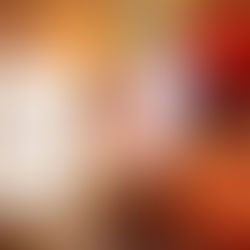How to make a beak using polymer clay
Our collection of patterns has recently been added to with nice birds, including a sparrow, an owl, a chicken and a bullfinch.
As a result, we started to get questions where one can find a suitable beak. Few craft shops can boast of a great variety of them.
We always want you to be happy with our patterns (link to shop), so we have an answer.
If you want a thing well done, do it yourself J
Materials and tools:
What will you need to make a beak? Not much!
- A piece of polymer clay of matching color (usually brown or black);
- varnish;
- a blunt needle.
We have already discussed what the polymer clay is, its pros and cons in the blog post devoted to the eyes made using polymer clay.
In short, it is a modelling material that is supposed to be baked in the oven under a certain temperature. Please note that polymer clay is very toxic. Thoroughly air the room where you use it. Do not use clay with anything that will prepare or touch food.
Making the beak
Usually the process starts with making a ball using your polymer clay. The diameter of the ball depends on the size of your toy.

Make a cone shape.


Try the beak onto the face. If you are satisfied with the size and shape of the piece, make two nostrils using a blunt needle.

If you want to highlight that the beak consists of two parts, try making a line dividing the beak into two using a blunt needle.

Some birds, such as owls, have a curved beak. It is easily made after making a cone shape. Curve the pointed end to form a hooked beak.

Some birds, such as chickens, have a more complex shape. But don’t be scared!
Take a piece of polymer clay and make two balls.

Make a triangle using each ball.

Join the corners of the triangles together shaping the beak. Make two nostrils using a blunt needle.


All you have to do is to bake the beak. Bake it strictly following the instructions of your polymer clay. Let it get cool completely. When it gets cold, varnish it and put aside until it is completely dry.
How to attach the beak made of polymer clay?
There two basic ways to attach the beak made of polymer clay.
1) to glue using transparent glue;
2) to sew (in this case you need to attach a metal loop, an eyehook pin or a eyehook screw at the back of the eye before you bake it).

Another option is kindly offered by Berta Hesen-Minten (ThReAdTeDs on Ravelry). If you don’t like using glue, you may want to sculpt the beak with a jewelry pin on each side. Then attach the beak with tiny disks and washers on the inside of the head.

If polymer clay is hard to find or you do not like working with this material, you can always try crocheting the beak. Some of our patterns offer this option as well.
We hope that after reading this article, you are not afraid of making the birds anymore. The lack of beaks in craft shops will not stop you from creating a wonderful bird that will decorate your house or become a nice gift for the people you love.






















